Vietnamese woman giving back after long road to self-sufficiency
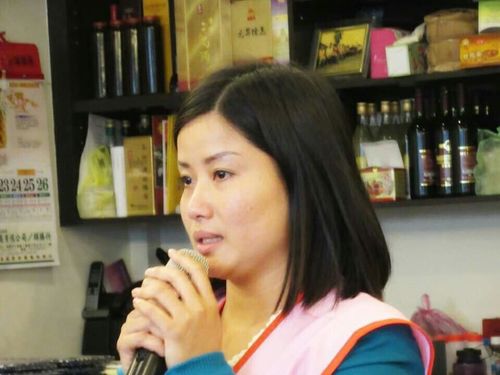 |
Huang Chun-chuang/ Photo courtesy of Huang Chun-chuang
She arrived in Taiwan without having completed middle school in Vietnam or knowing any Mandarin, but that did not stop her from dreaming of being her own boss.
It was that strong determination that helped her raise her son while working two part-time jobs a day, learn Chinese, survive a porce, get certified as a beauty technician and finally run her own beauty parlor in Xindian.
She now serves as an inspiration to other Vietnamese who have married into Taiwanese families, and spends a quarter of her income on teaching Chinese to Vietnamese migrants for free, knowing firsthand how hard it is for a spouse from her native land to succeed in Taiwan.

Vietnamese spouses and migrant workers taking Chinese lessons / Photo courtesy of Huang Chun-chuang.
"I want to teach them not only the Chinese language itself but also how to live their life in Taiwan so that one day they can, like me, become economically self-sufficient," she told CNA during a recent interview.
Getting Started
Recalling her days when she first got married, Huang said that rather than being a stay-at-home mom, she wanted to help her husband by earning extra income.
She got jobs working at a local restaurant and giving away flyers at MRT stations, but had a hard time initially because of her inability to speak the language.
Huang endured many embarrassing experiences at the restaurant because of her inability to understand customers' orders, which gave her the motivation needed to pick up the language.
She learned her Mandarin at a nearby church that offered free lessons and later enrolled in a local elementary school to sharpen her skills.
Learning a New Trade
After years of working in the restaurant, Huang gained the complete trust of her boss through her hard work and dedication and was promoted to a supervisor position with a better than average salary.
Yet that did not satisfy her desire to learn a trade she could always lean on, no matter where she was.
So she quit her job at the restaurant and began working as an apprentice at a local beauty parlor while also deciding to enroll at a vocational school to get formal training as a beauty technician.

Vietnamese spouses and migrant workers taking Chinese lessons / Photo courtesy of Huang Chun-chuang
Standing in Huang's way, however, was the NT$70,000 tuition that she could not afford. Luckily, she met an instructor at the school who was so moved by her determination that the instructor was willing to put up the money.
"She (the instructor) asked me if I was really serious in wanting to learn the trade, I said yes. She then took her credit card and paid the tuition for me," she said.
It took Huang years to pay back the tuition in installments, but she did not let the instructor down.
Crumbling Marriage
With the experience she gained as an apprentice and the courses she took, Huang finally passed the test to be certified as a level-three beauty technician, the minimum level needed to go into the business.
She then went into business for herself, starting by renting a small space in an apartment to serve customers.
The late nights she worked, however, took its toll on her marriage, leading to constant quarrels with her husband who, according to Huang, had trouble understanding her desire to be self-sufficient economically.
They eventually got a porce, which was a hard blow for her to deal with, and the fact that her husband got custody of their son only deepened her pain, but she continued to persevere with her career.
By the time she got porced, she had become a naturalized R.O.C. citizen and was able to stay in Taiwan, and after years of hard work, she finally opened her own full-scale beauty parlor in Xindian in early April, supported by a group of loyal customers.
As Huang's business grew stronger, she began to give back, especially to other Vietnamese natives who, like her, came to Taiwan to get married.
According to Taiwan government figures, around 530,000 former foreign nationals had become naturalized Taiwanese citizens through marriage as of 2017.
Among them, more than 100,000 were Vietnamese, making them the second largest contingent of spouses from abroad in Taiwan, behind only China.
Giving Back
Huang said many of them cannot speak Chinese, and knowing firsthand the importance of being able to communicate to assimilate into Taiwanese society, she started a Facebook page two years ago to teach Chinese to Vietnamese in Taiwan.
She has filmed short clips showing how to speak Chinese using Vietnamese phonetic symbols or how to write Chinese characters, and they have been well-received, earning her many followers on Facebook.

Vietnamese spouses and migrant workers taking Chinese lessons / Photo courtesy of Huang Chun-chuang
Some of those followers now record video clips of themselves speaking Chinese for Huang to check, while a number of migrant workers from Vietnam print out the Chinese characters and display them on the walls of the factories at which they work, according to Huang.
"It has been really heartwarming to see many of them so eager to learn the language, and it made me want to do more," she said.
Since last year, Huang and another native of Vietnam started a Sunday Chinese-language school at a temple in Taipei's Muzha area that now offers instruction to roughly 20 Vietnamese every week.
Huang said she devotes about a quarter of her income to support the free school and buy the necessary textbooks, pens and other tools used to teach the language.
At the same time, she said, she is happy to see more Taiwanese picking up Vietnamese.
Some of those learning Vietnamese from her during her spare time include a mother-in-law of one of the Vietnamese spouses and many of their husbands who want to be able to communicate directly with their new families, she said.
"I am glad to see that learning languages has become a two-way thing, which will definitely help both peoples better understand each other," she said.
Huang said that while these initiatives take up quite a bit of time and money, she is more than happy as a devout Buddhist to engage in such activities to give back to the society that helped her realize her own dream.
VNF ( CNA )
Recommended
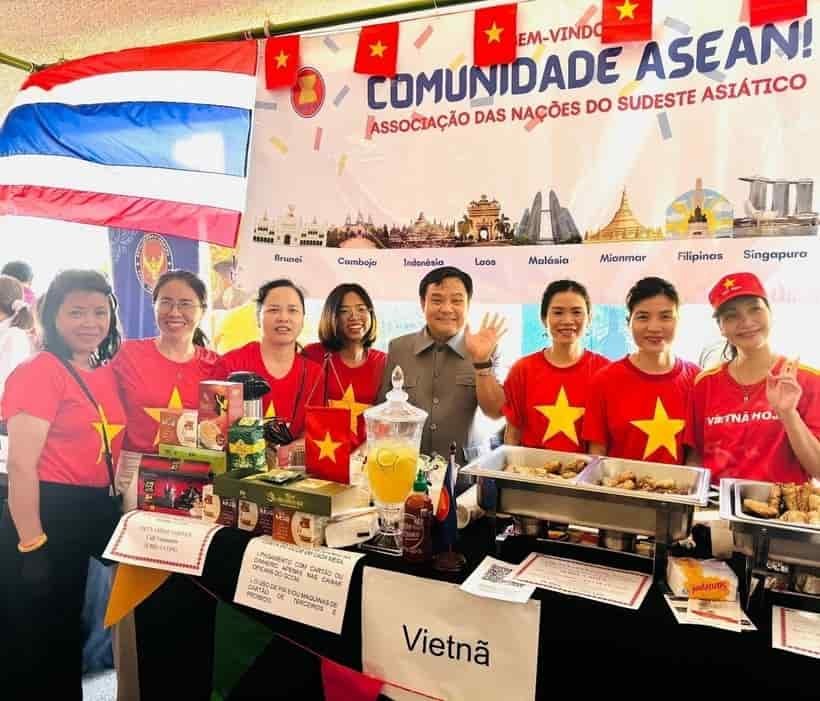 Overseas Vietnamese
Overseas Vietnamese
Vietnam Brings Flavor and Culture to Brazil’s International Fair
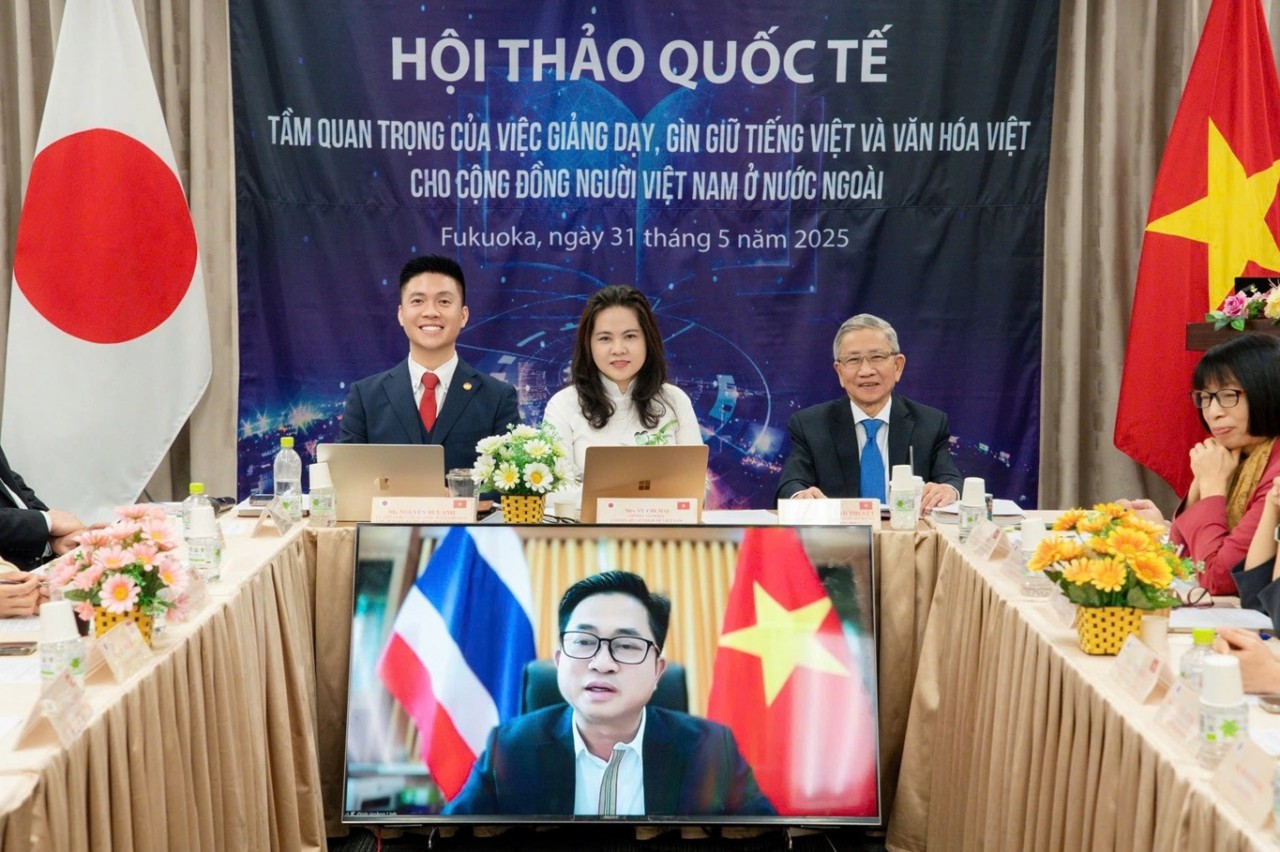 Overseas Vietnamese
Overseas Vietnamese
Contribute to Form a "Global Vietnamese Ecosystem"
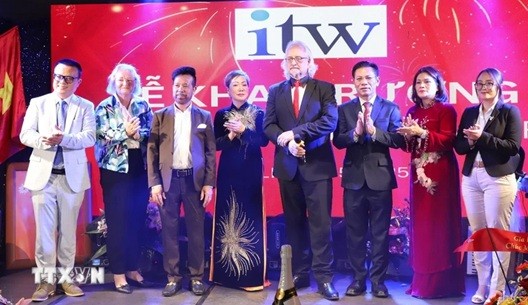 Overseas Vietnamese
Overseas Vietnamese
Language and Vocational School for Vietnamese launched in Germany
 Overseas Vietnamese
Overseas Vietnamese
A Heart-warming International Children's Day in Abyei
Popular article
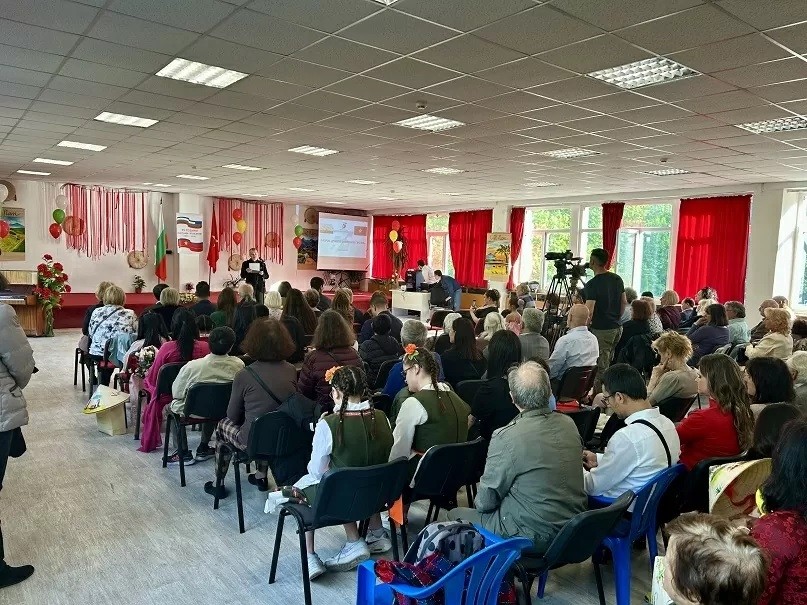 Overseas Vietnamese
Overseas Vietnamese
Art Program Deepens Vietnam-Bulgaria Cultural Exchange and Friendship
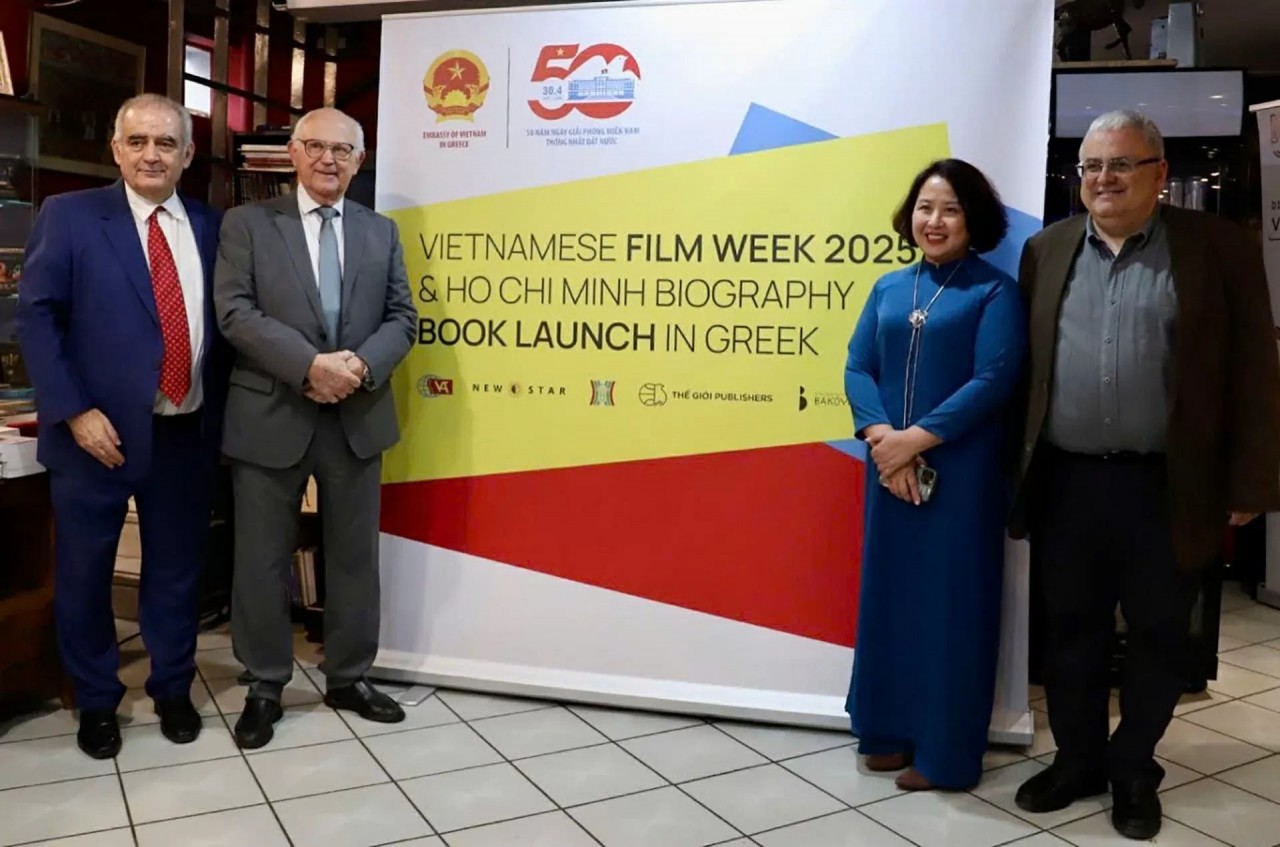 Overseas Vietnamese
Overseas Vietnamese
First Vietnamese Film Week Opens in Greece
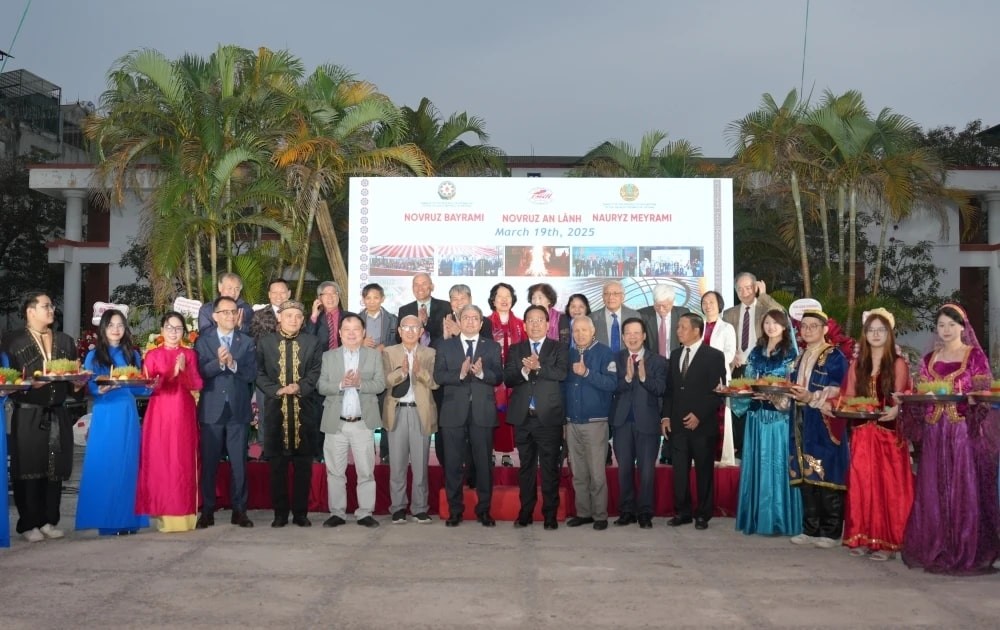 Overseas Vietnamese
Overseas Vietnamese
Strong Bonds Between Vietnam And Belarus, Azerbaijan, and Kazakhstan
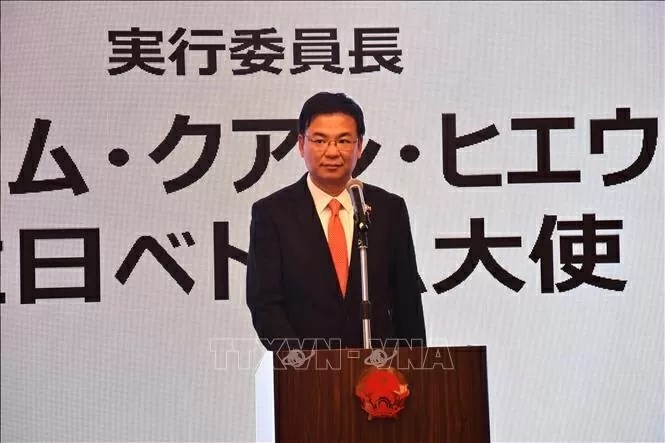 Overseas Vietnamese
Overseas Vietnamese



